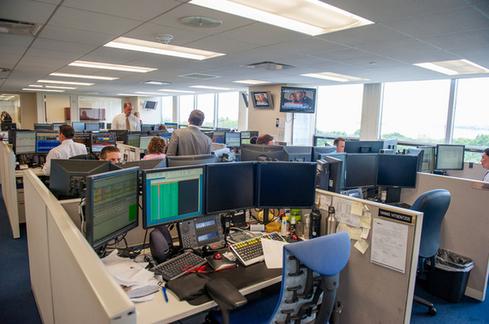04:48 PM
Learning From Past Mistakes With Predictive Analytics
History is destined to repeat itself, but what if a trader had a crystal ball? Could firms avoid repeating past mistakes and improve efficiency? Verdande Technology, provider of real-time Case-Based Reasoning technology, believes it can.
Verdande began as an academic study with a focus on oil rigs. Data was taken in real-time off a rig and correlated with past cases that impacted the rig's ability to drill. With millions of dollars of production relying on these rigs every day, interest in predicting and mitigating risk is high. In 2012, Verdande made the decision to leverage the technology in healthcare and financial services.
Case-Based Reasoning, the problem-solving approach based on the idea that similar problems have similar solutions, is a methodology that had been around for years but never used in real-time.
Joanne Kinsella, CEO of Financial Services at Verdande, drives the point home: "Wouldn't it be great if you could see into the future based on history? You could almost predict the way traders will behave based on previous experience. That makes it easier to get clear foresight."
Verdande is tracking what 'normal' looks like for a firm to better detect anomalies and risk. The operational surveillance and early warning systems use a mix of Case-Based Reasoning and complex system analysis to highlight deviations such that they can see events trending or diverging in a certain way. In cases of deviation, users can see what happened in a previous instance, what actions were taken, and the consequences that arose from it. The information allows traders to better understand the business problem and proactively mitigate the issue, ideally with more speed and less expense than the earlier situation.
In financial services it is rare that some kind of event doesn't limit a firm's ability to trade and put them in news. Users close to the trading desk and teams that support the business line are interested in this kind of disruptive technology because it targets areas that are highest risk in terms of business impact. "From an operational standpoint people are interested in an additional line of defense," says Kinsella. "It's a paradigm shift from traditional monitoring tools."
Technology and Data Streams
The company's Edge platform has several interfaces that run in real time and send alerts. Kinsella says they have given users the ability to see dots on a radar screen, with dots in the middle of the screen indicating a higher statistical correlation between what is happening in real time with what happened in the past. Those who want to better understand the scenario are able to pull the available data.
[Virtual Aggregation Gains Momentum as Buy Side Looks to Consolidate Commission Relationships]
The platform's architecture can scale millions of messages at high speed, and connect with dispersed data sets around the globe. "On the one hand, the more data the better, but on the other, if you don't have all the pieces we can still find interesting insight."
Proof of Concept
A proof of concept and pilots are underway as Verdande continues its development of the product.
Kinsella is unable to disclose its current clients, which include a tier one bank, a large exchange and IEX, but says they have already had some interesting findings in the data that had not been seen before.
"Early warning system and risk analysis plays nicely into market structure regulations, risk, and being able to respond in a much more informed way about what's going on across critical trading applications," she adds. "We're working hard to build product." Verdande aims to go to market in the first quarter. Becca Lipman is Senior Editor for Wall Street & Technology. She writes in-depth news articles with a focus on big data and compliance in the capital markets. She regularly meets with information technology leaders and innovators and writes about cloud computing, datacenters, ... View Full Bio























